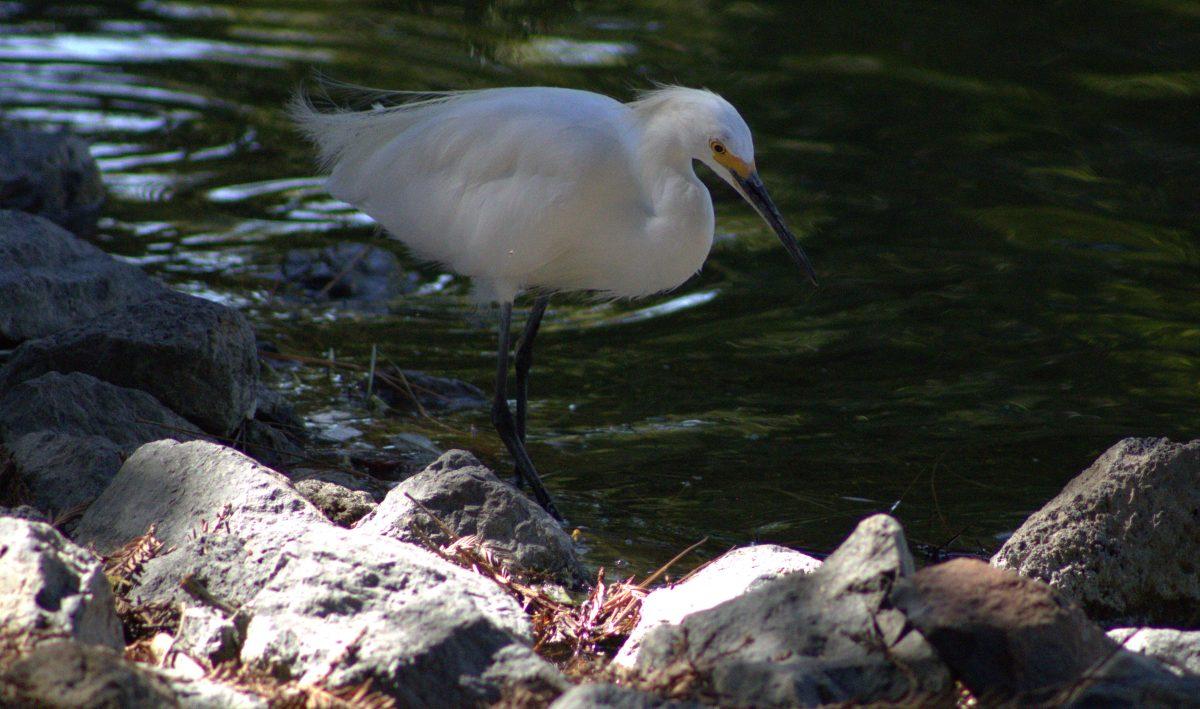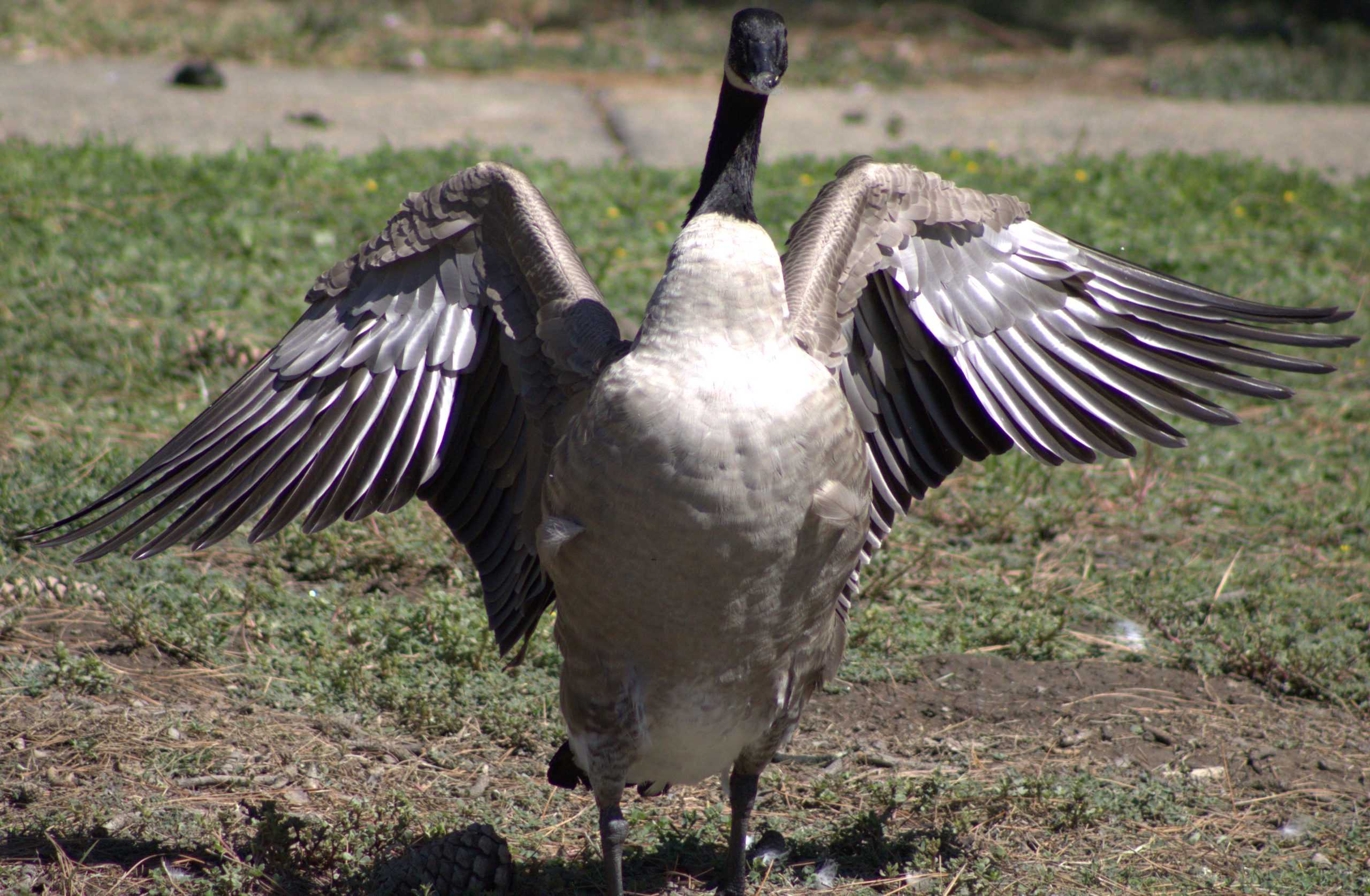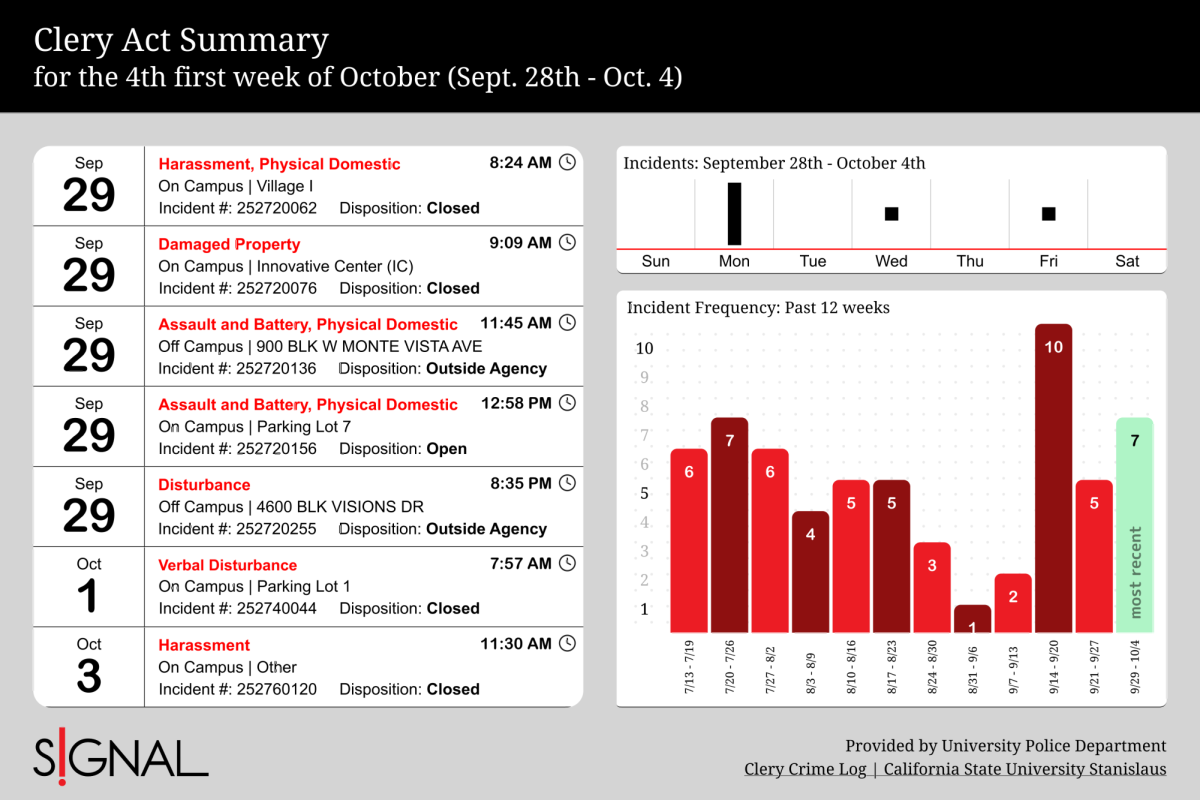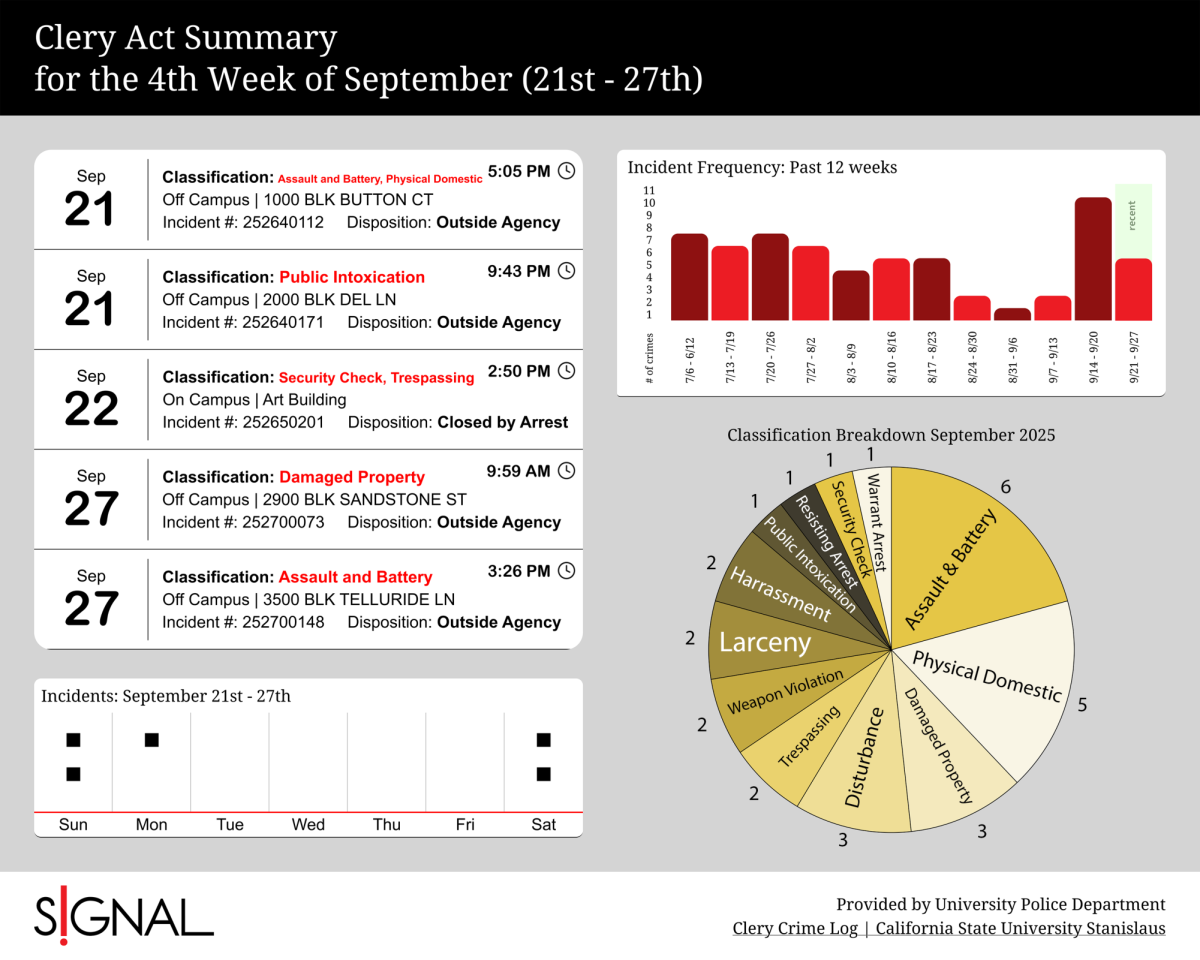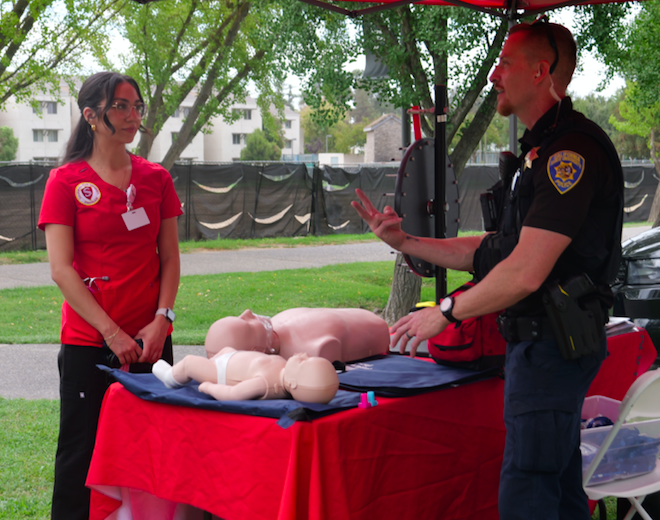Stanislaus State Safety and Risk Management reported in August that cases of H5N1 virus or bird flu were identified in Stanislaus County putting farms in the area on high alert this fall. Stan State is home to a wide array of bird species. Canadian geese, being the most known of the birds on campus, is also the most likely to be a carrier. Although none have tested positive for bird flu, it doesn’t mean our campus and community are out of the clear.
Dr. Ryan Terrill, professor of biological sciences, explained that bird flu, an influenza virus, is similar to the human flu, which has different strains of the virus that a bird can contract.
“… the same thing happens for birds where there’s a flu season every year, it’s a little different every year, and the prevalence is different,” Terrill said.
He added that waterfowl are often carriers, while domesticated birds are affected in more fatal ways.
Transmission
Bird flu is a virus and can be transmitted just like any other virus. Contact with saliva, feces, or places and grounds that where an infected individual had been. Like the human flu, physical touch or exposure to the droplets that contain the virus are how it is transmitted. Bird flu infections spread faster than the normal human flu virus and is far more fatal for domesticated birds like poultry.
According to Bill Mattos, president of California Poultry Federation, “ If one bird in a barn of 30,000 contracts bird flu all of them will be dead in five days.”
Mattos noted that went on to explain that bird flu infections in Tuolumne County lead to 151,000 turkeys being lost in just this last month.
Humans are indeed capable of contracting bird flu, however the chances of getting it are extremely low to zero.
According to the Center for Disease Control (CDC), “Bird flu virus infection in people cannot be diagnosed by clinical signs and symptoms alone; laboratory testing is needed”. Physical contact with the infected party or contact with droplets of the virus are needed for individuals to have a chance at getting it.
How it affects the community and the county
Although the chances of a person contracting bird flu are almost none, bird flu in our county and on campus still has its effects on people. Students are still capable of bringing the virus home and exposing any birds or poultry to a virus that is fatal to some birds, just by stepping on goose droppings while on campus.
“If students do live on farms with birds, that would be something good to be careful of,” Terrill said. “Wash your shoes, especially if you do step on goose poop.”
Bird flu cases so far this year have been found close to home. Poultry farms are at high alert this fall because of the expected flyover, according to Mattos.
“In Stanislaus county, only backyard flocks have been seen to be affected so far” Mattos explained, and that could be disastrous for any size flock.
“The sick bird can’t simply be removed from the flock if it were to contract bird flu because the whole flock was already exposed,” he said “If there was a bird flu infection at a farm, every bird in the barn would have to be humanely euthanized and the barn would have to be sanitized.”
Although it’s not serious for humans, bird flu isn’t something to be taken lightly. If you see a sick or deceased bird do not try to handle it yourself. Instead, call UPD at (209) 667-3114 (after-hours call (209) 667-3911) or Capital Planning and Facilities Management at (209) 667-3211 and they will know how to properly handle the situation.

